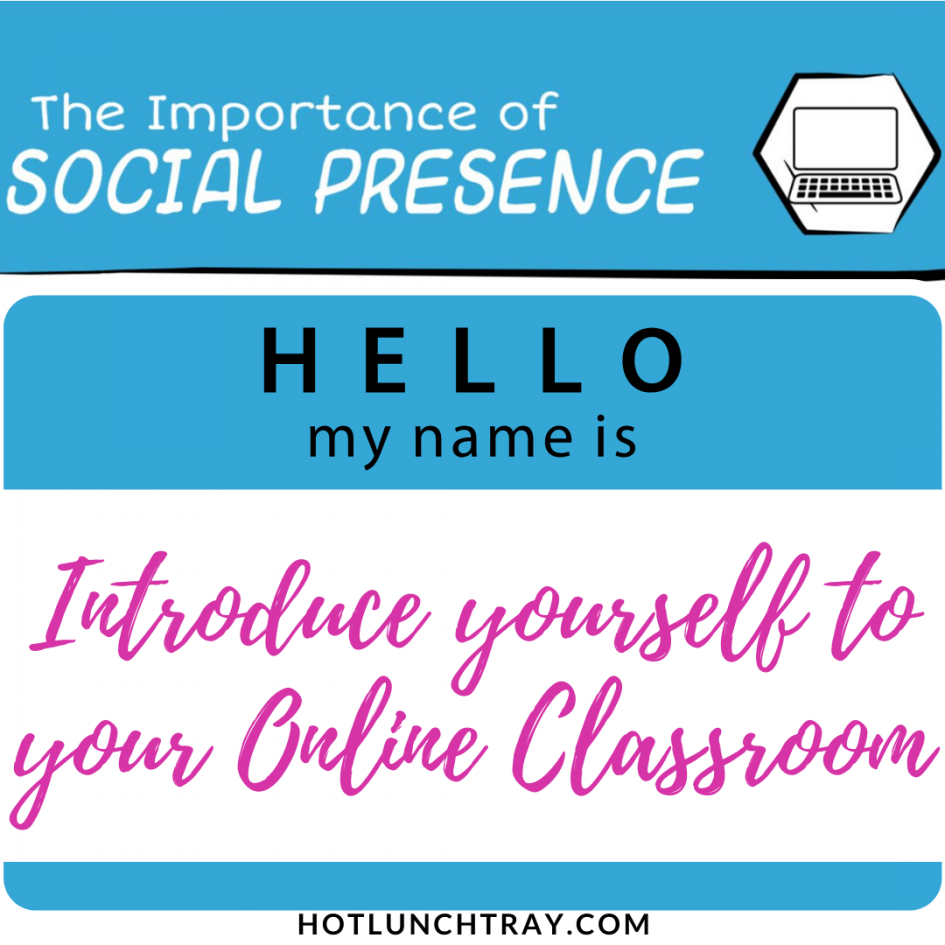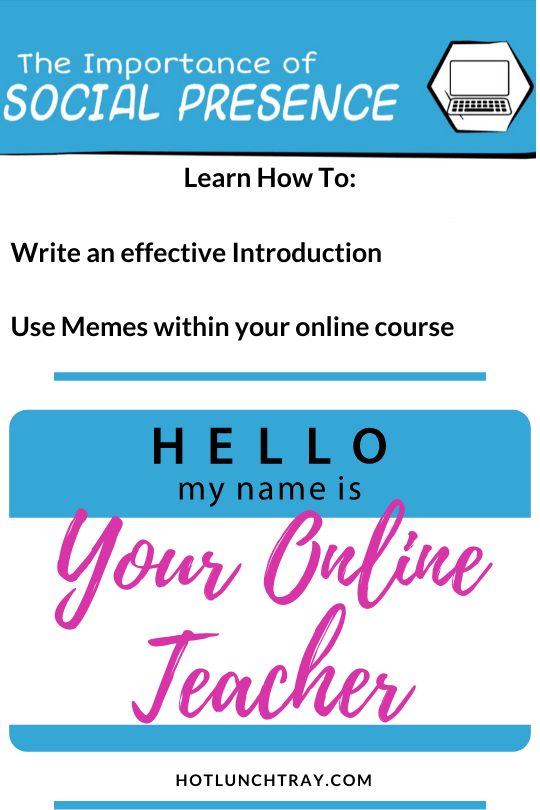An introduction is difficult. The introduction is the start of your Social Presence in your online classroom. If you are a novice online educator you may be especially concerned. Allow me to share two methods for K-12 educators to enhance your social presence in your online classroom. First, you need an effective online environment introduction by the instructor. Second, consider the use of memes by both the instructor and participants.
McKay mentions the usefulness of including personal introductions or media with personal information that humanizes the instructor. The first way to combat a lack of personalization is for the instructor to put themselves out into the course first as a friendly member of the community and invite others to join in the sharing.
In support of this idea The Quality Matters K-12 Rubric, Fifth Edition, Standard 1.7 C speaks to setting the tone for the course:
“An appropriate self-introduction helps learners get to know the instructor and, in addition to the essentials mentioned above, could include:
- Information on teaching philosophy
- Past experience with teaching online courses
- Personal information such as hobbies, family, travel experiences, etc.
- A photograph, audio message, or video, including alternative formats to ensure accessibility” (The Quality Matters K-12 Rubric, n.d.)
A “meme” is a popular visual culture reference unit that spreads widely; Internet memes spread via the Internet (Scardina, 2017). Students communicate with memes already and enjoy composing memes to exhibit their deep knowledge of popular culture and express their sense of humor. Internet memes are ideal “… tool to explain a concept and for students to express their knowledge on a topic and flex their critical-thinking skills” (Scardina, 2017). These creations are a fun way to challenge students in higher-order thinking skills.
Both of these techniques increase social presence in online learning environments based on research. These are also a version of what we automatically do face-to-face, but we simply need deliberation and detailed follow-through to execute these strategies.
References
McKay, C. (Course lecturer). (2019). Defining social presence: Module 7; Six ways to increase social presence: Part 2. American College of Education. https://www.ace.edu
Scardina, C. (2017). Through the Lens of Popular Culture: Why Memes and Teaching Are Well Suited. Teacher Librarian, 45(2), 13-16.
The Quality Matters K-12 Rubric. (n.d.). Retrieved November 14, 2019, from https://www.qmprogram.org/







3 Pingbacks